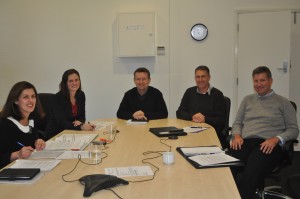 Earlier this year Margaret Callan and I released a Devpolicy discussion paper on public-private partnerships for development which achieved wide circulation. In the paper and this summary blog post, we were up-front about the fact that our work yielded more questions than answers about the merits of each form of partnership discussed. We undertook to tackle some of those questions in the course of this year, including by establishing a working group on the practice of using financial incentives to promote “inclusive” business through enterprise challenge funds.
Earlier this year Margaret Callan and I released a Devpolicy discussion paper on public-private partnerships for development which achieved wide circulation. In the paper and this summary blog post, we were up-front about the fact that our work yielded more questions than answers about the merits of each form of partnership discussed. We undertook to tackle some of those questions in the course of this year, including by establishing a working group on the practice of using financial incentives to promote “inclusive” business through enterprise challenge funds.
Many donors have used such funds in one form or another, including Australia. Australia’s Enterprise Challenge Fund for the Pacific and South East Asia is due to close later this year after what has generally been perceived as a successful six-year run. It’s not yet clear what, if anything, might replace it.
Devpolicy’s working group on enterprise challenge funds is now up and running. It comprises 17 people from around the world with a great depth of experience in the design, implementation and evaluation of such funds. I chaired its first meeting, involving those pictured and others hooked in by phone from overseas, on 4 July. It will meet twice more in July and August.
Once the meetings are done, Devpolicy will take stock and then prepare a policy brief with findings and recommendations for release in September. This will attempt to clarify the circumstances under which enterprise challenge funds, in their various forms, offer strong potential to achieve sustainable development impacts. By implication, it will also clarify the circumstances under which quite different approaches might be more appropriate—for example, approaches that engage the public sector, or deliver public goods beneficial for all market actors. The brief will also identify the most desirable high-level design features of enterprise challenge funds.
Though other organisations often use working groups to gather and test ideas, this is first time the approach has been tried by Devpolicy. We take it for granted that 17 heads are better than one. We recognise, also, that consensus is not a sensible aim—which is why the policy brief will be a product of Devpolicy, not of the working group itself. Our task will be to extract a coherent set of findings and recommendations from a very rich spectrum of views and experiences. If we can do that, we’ll certainly apply the same approach to other topics.


Leave a Comment